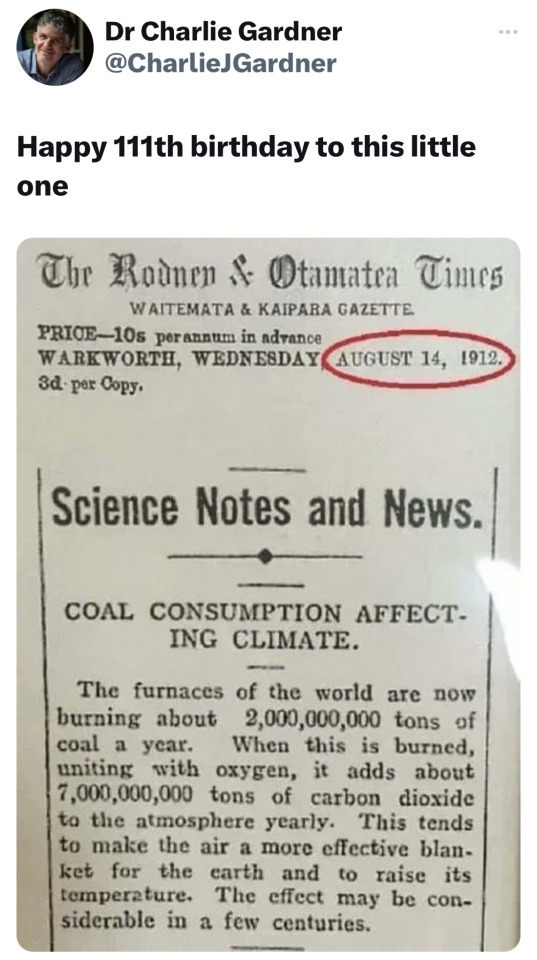#Global Warming
Text
780 notes
·
View notes
Text
PLEASE SIGN! IT TAKES 20 SECONDS!
#solarpunk#ecopunk#punk#punk diy#queer punk#hopepunk#diy punk#anarchism#ecofriendly#climate emergency#environmentalism#earth#environment#protest#gogreen#reduce reuse recycle#recycling#global plastics treaty#global warming#global news#climate news#world news
50 notes
·
View notes
Text
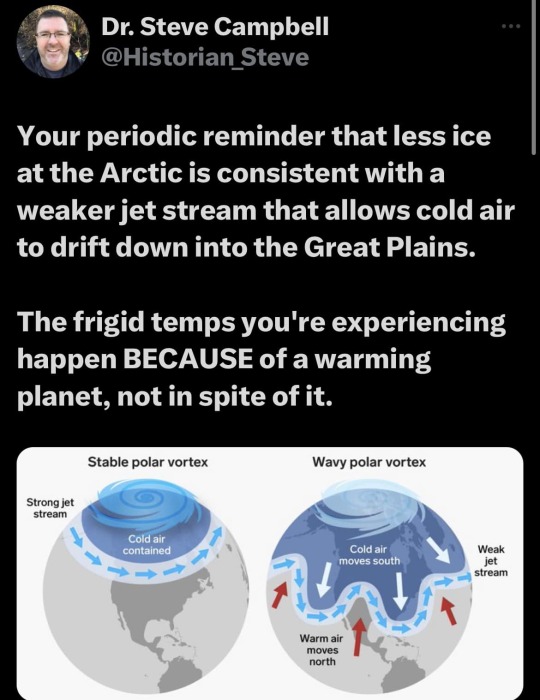
So many people do not understand the relationship between climate change and cold weather.
111K notes
·
View notes
Text
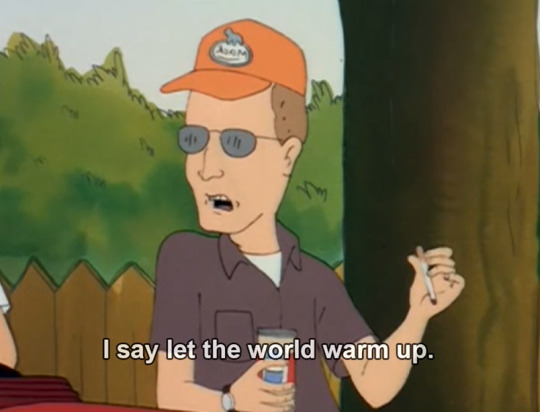
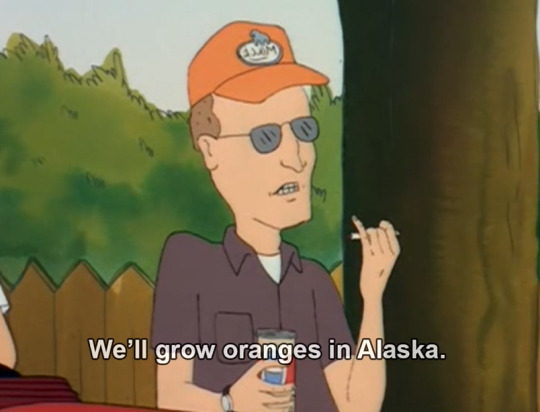

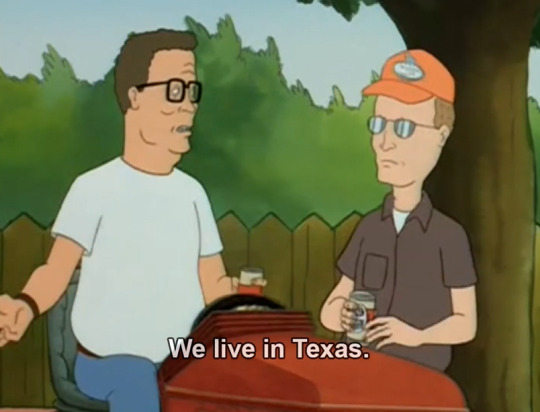


The fact that this joke is from the very first episode (which aired in January 1997) is messing with me.
60K notes
·
View notes
Text
No paywall version here.
"Two and a half years ago, when I was asked to help write the most authoritative report on climate change in the United States, I hesitated...
In the end, I said yes, but reluctantly. Frankly, I was sick of admonishing people about how bad things could get. Scientists have raised the alarm over and over again, and still the temperature rises. Extreme events like heat waves, floods and droughts are becoming more severe and frequent, exactly as we predicted they would. We were proved right. It didn’t seem to matter.
Our report, which was released on Tuesday, contains more dire warnings. There are plenty of new reasons for despair. Thanks to recent scientific advances, we can now link climate change to specific extreme weather disasters, and we have a better understanding of how the feedback loops in the climate system can make warming even worse. We can also now more confidently forecast catastrophic outcomes if global emissions continue on their current trajectory.
But to me, the most surprising new finding in the Fifth National Climate Assessment is this: There has been genuine progress, too.
I’m used to mind-boggling numbers, and there are many of them in this report. Human beings have put about 1.6 trillion tons of carbon in the atmosphere since the Industrial Revolution — more than the weight of every living thing on Earth combined. But as we wrote the report, I learned other, even more mind-boggling numbers. In the last decade, the cost of wind energy has declined by 70 percent and solar has declined 90 percent. Renewables now make up 80 percent of new electricity generation capacity. Our country’s greenhouse gas emissions are falling, even as our G.D.P. and population grow.
In the report, we were tasked with projecting future climate change. We showed what the United States would look like if the world warms by 2 degrees Celsius. It wasn’t a pretty picture: more heat waves, more uncomfortably hot nights, more downpours, more droughts. If greenhouse emissions continue to rise, we could reach that point in the next couple of decades. If they fall a little, maybe we can stave it off until the middle of the century. But our findings also offered a glimmer of hope: If emissions fall dramatically, as the report suggested they could, we may never reach 2 degrees Celsius at all.
For the first time in my career, I felt something strange: optimism.
And that simple realization was enough to convince me that releasing yet another climate report was worthwhile.
Something has changed in the United States, and not just the climate. State, local and tribal governments all around the country have begun to take action. Some politicians now actually campaign on climate change, instead of ignoring or lying about it. Congress passed federal climate legislation — something I’d long regarded as impossible — in 2022 as we turned in the first draft.
[Note: She's talking about the Inflation Reduction Act and the Infrastructure Act, which despite the names were the two biggest climate packages passed in US history. And their passage in mid 2022 was a big turning point: that's when, for the first time in decades, a lot of scientists started looking at the numbers - esp the ones that would come from the IRA's funding - and said "Wait, holy shit, we have an actual chance."]
And while the report stresses the urgency of limiting warming to prevent terrible risks, it has a new message, too: We can do this. We now know how to make the dramatic emissions cuts we’d need to limit warming, and it’s very possible to do this in a way that’s sustainable, healthy and fair.
The conversation has moved on, and the role of scientists has changed. We’re not just warning of danger anymore. We’re showing the way to safety.
I was wrong about those previous reports: They did matter, after all. While climate scientists were warning the world of disaster, a small army of scientists, engineers, policymakers and others were getting to work. These first responders have helped move us toward our climate goals. Our warnings did their job.
To limit global warming, we need many more people to get on board... We need to reach those who haven’t yet been moved by our warnings. I’m not talking about the fossil fuel industry here; nor do I particularly care about winning over the small but noisy group of committed climate deniers. But I believe we can reach the many people whose eyes glaze over when they hear yet another dire warning or see another report like the one we just published.
The reason is that now, we have a better story to tell. The evidence is clear: Responding to climate change will not only create a better world for our children and grandchildren, but it will also make the world better for us right now.
Eliminating the sources of greenhouse gas emissions will make our air and water cleaner, our economy stronger and our quality of life better. It could save hundreds of thousands or even millions of lives across the country through air quality benefits alone. Using land more wisely can both limit climate change and protect biodiversity. Climate change most strongly affects communities that get a raw deal in our society: people with low incomes, people of color, children and the elderly. And climate action can be an opportunity to redress legacies of racism, neglect and injustice.
I could still tell you scary stories about a future ravaged by climate change, and they’d be true, at least on the trajectory we’re currently on. But it’s also true that we have a once-in-human-history chance not only to prevent the worst effects but also to make the world better right now. It would be a shame to squander this opportunity. So I don’t just want to talk about the problems anymore. I want to talk about the solutions. Consider this your last warning from me."
-via New York Times. Opinion essay by leading climate scientist Kate Marvel. November 18, 2023.
#WE CAN DO THIS#I SO TRULY BELIEVE THAT WE CAN DO THIS#WE CAN SAVE OURSELVES AND THE WORLD ALONG WITH US#climate crisis#united states#climate change#conservation#hope posting#sustainability#climate news#climate action#climate emergency#fossil fuels#global warming#environmentalism#climate hope#solarpunk#climate optimism#climate policy#earth#science#climate science#meteorology#extreme weather#renewable energy#solar power#wind power#renewables#carbon emissions#climate justice
33K notes
·
View notes
Text
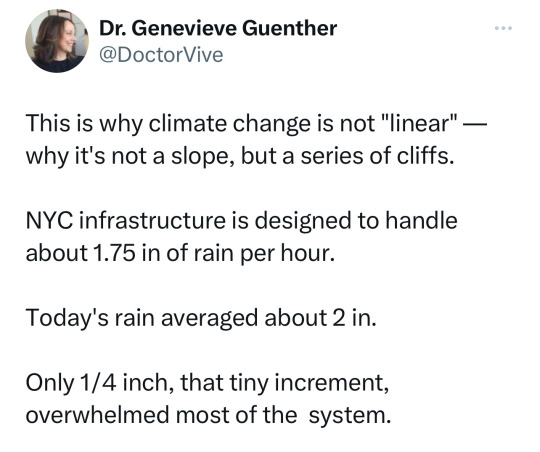

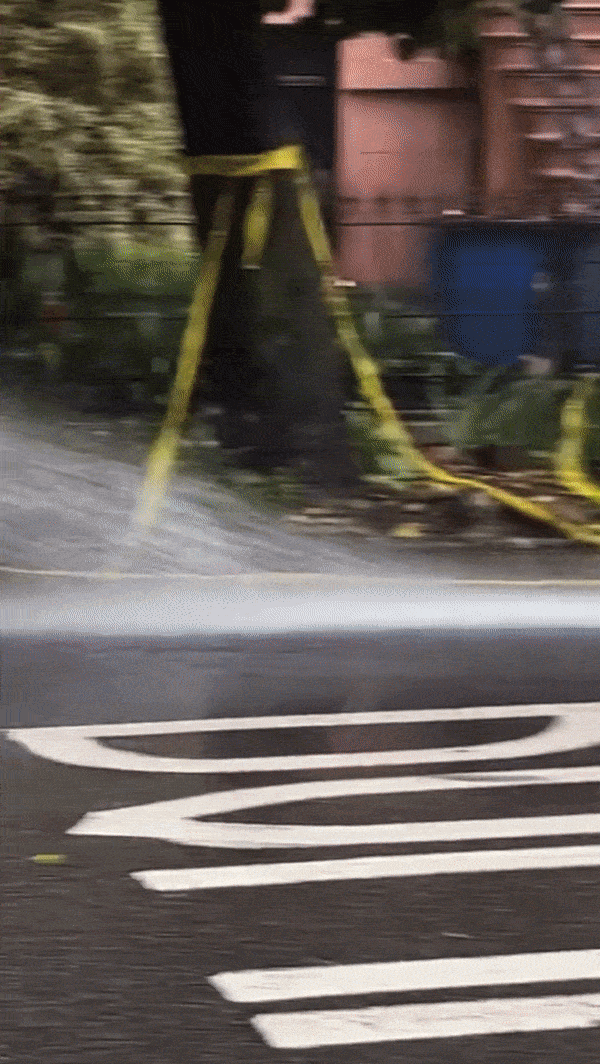
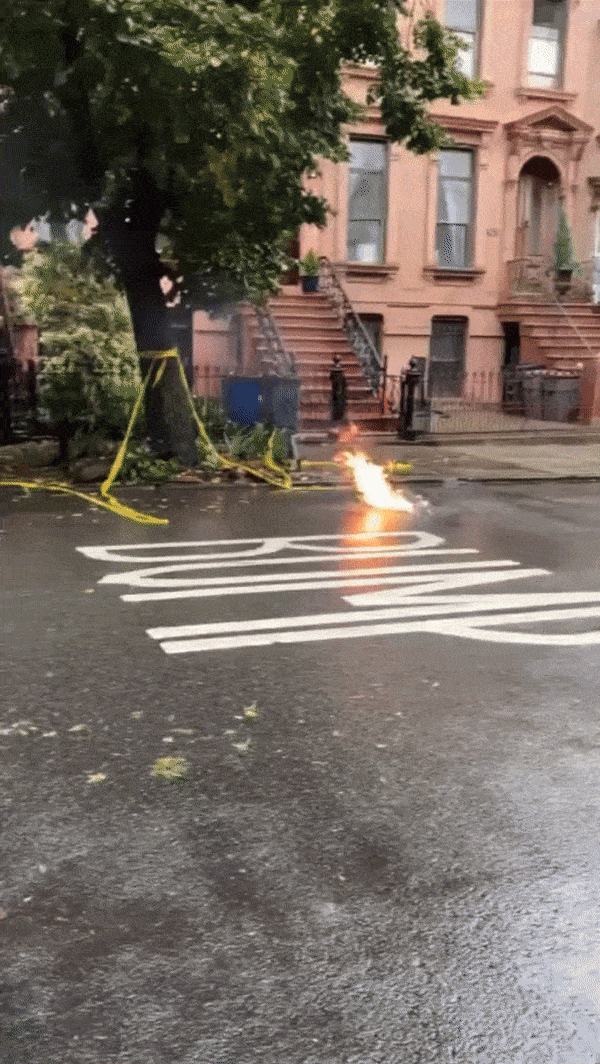

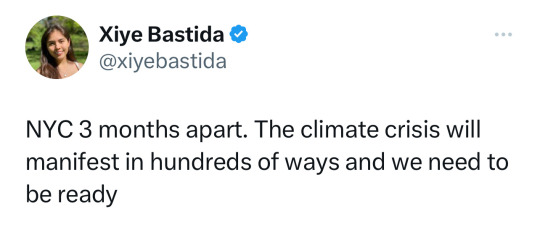
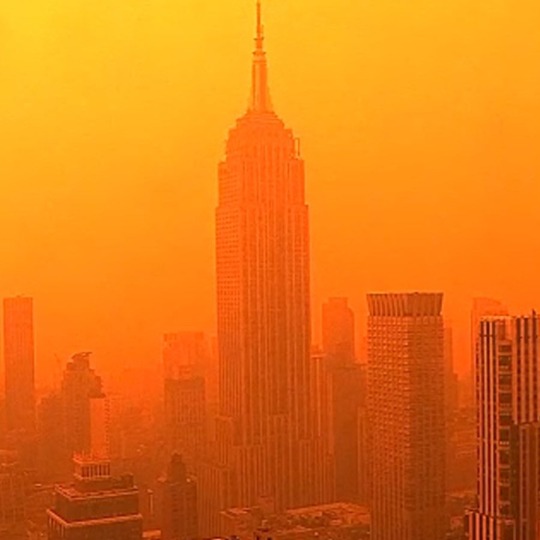
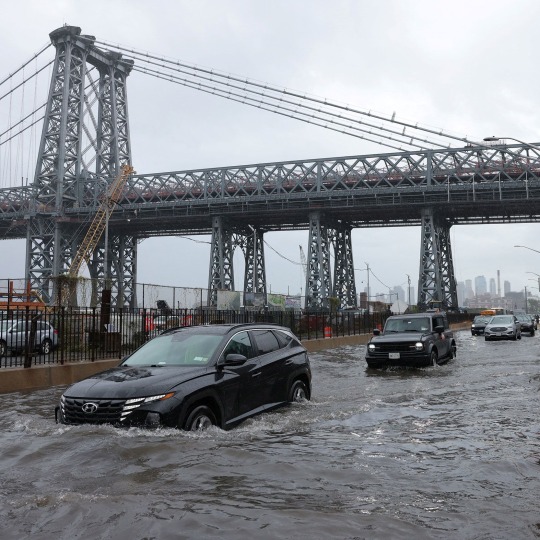
Nothing to see here, just fire + floods + climate change
#politics#climate change#climate crisis#global warming#nyc#nyc flooding#nyc floods#climate collapse#civil engineering
29K notes
·
View notes
Text
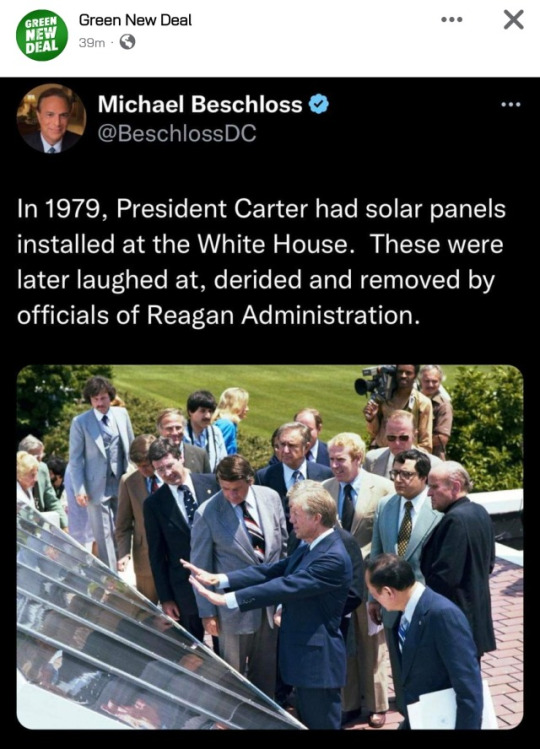

65K notes
·
View notes
Text
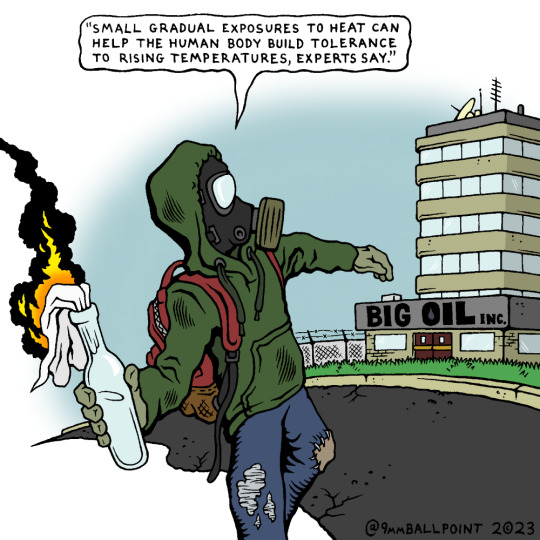
PS: for entertainment purposes only, of course
PPS: actual Washington Post quote
25K notes
·
View notes
Text
















Sorry for the bad photo quality, Tumblr doesn't like posts this long.
#ramblings#politics#communism#socialism#climate change#not a reblog#when our turn comes#we shall not make excuses for the terror#environment#enviromentalism#carbon emissions#carbon footprint#global warming#climate collapse#anti capitalism#radical left#left wing#long posts#long post#color of the sky#hot take#this took like 20 minutes to upload because Tumblr kept crashing#and like 90 minutes to make
42K notes
·
View notes
Text




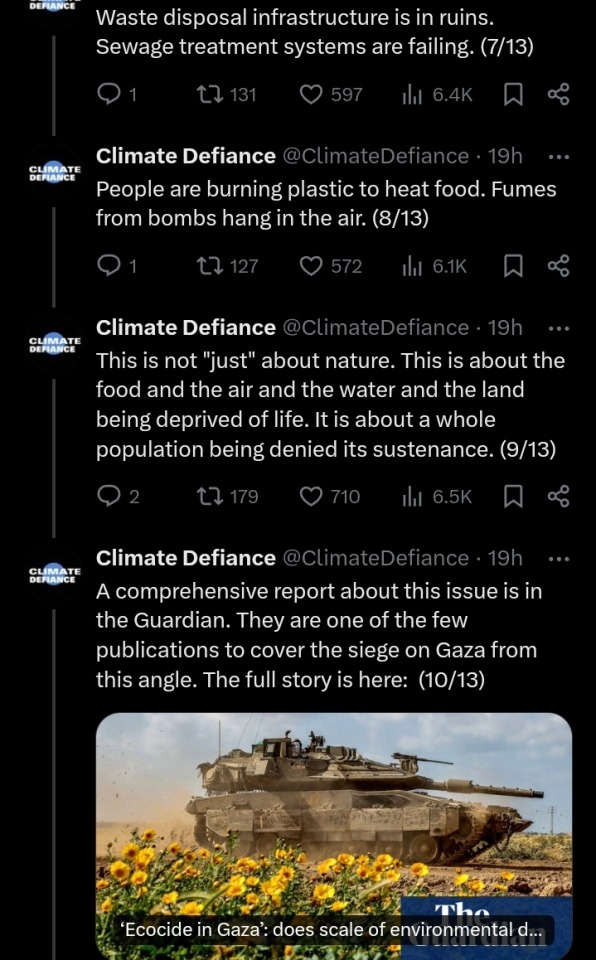
#yemen#jerusalem#tel aviv#current events#palestine#free palestine#gaza#free gaza#news on gaza#palestine news#news update#war news#war on gaza#climate change#climate crisis#climate justice#global warming#environmental justice
6K notes
·
View notes
Text
hey uh so I haven't seen anyone talking about this here yet, but
the amazon river, like the biggest river in the fucking world, in the middle of the amazon fucking rainforest, is currently going through its worst drought since the records began 121 years ago
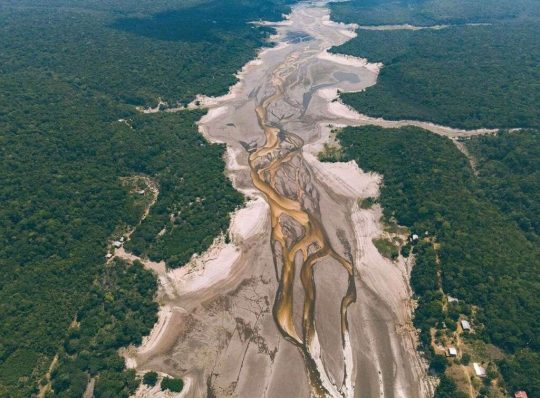
picture from Folha PE
there's a lot going on but I haven't seen much international buzz around this like there was when the forest was on fire (maybe because it's harder to shift the narrative to blame brazil exclusively as if the rest of the world didn't have fault in this) so I wanted to bring this to tumblr's attention
I don't know too many details as I live in the other side of the country and we are suffering from the exact opposite (at least three cyclones this year, honestly have stopped counting - it's unusual for us to get hit by even one - floods, landslides, we have a death toll, people are losing everything to the water), but like, I as a brazilian have literally never seen pictures of the river like this before. every single city in the amazonas state is in a state of emergency as of november 1st.
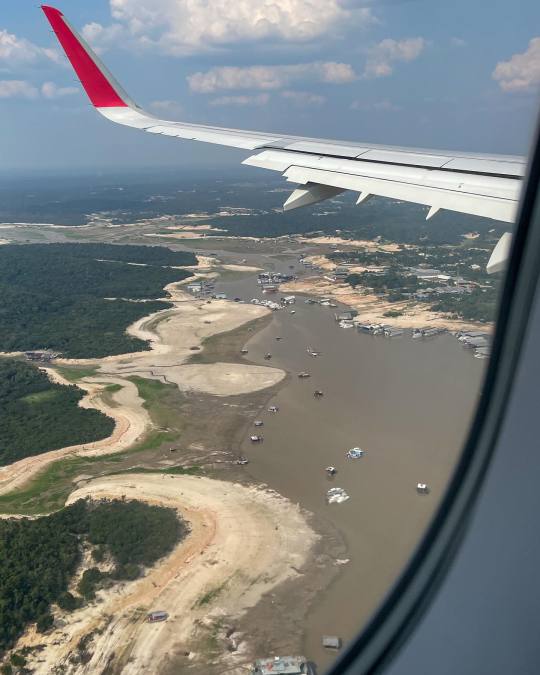
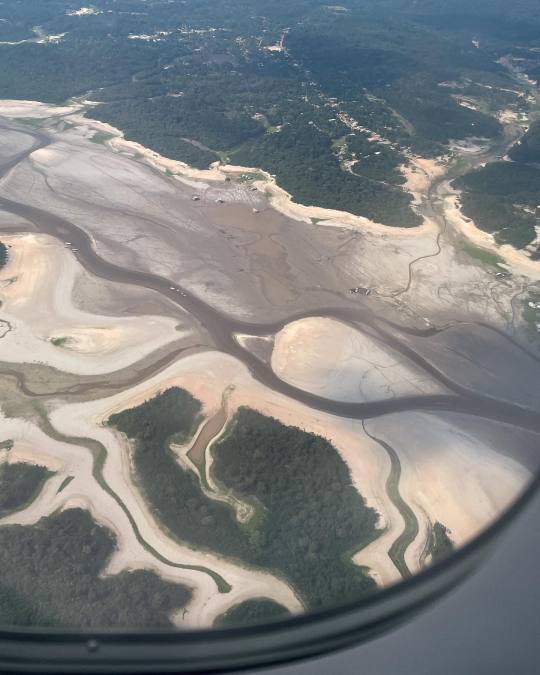
pictures by Adriano Liziero (ig: geopanoramas)
we are used to seeing images of rio negro and solimões, the two main amazon river affluents, in all their grandiose and beauty and seeing these pictures is really fucking chilling. some of our news outlets are saying the solimões has turned to a sand desert... can you imagine this watery sight turning into a desert in the span of a year?
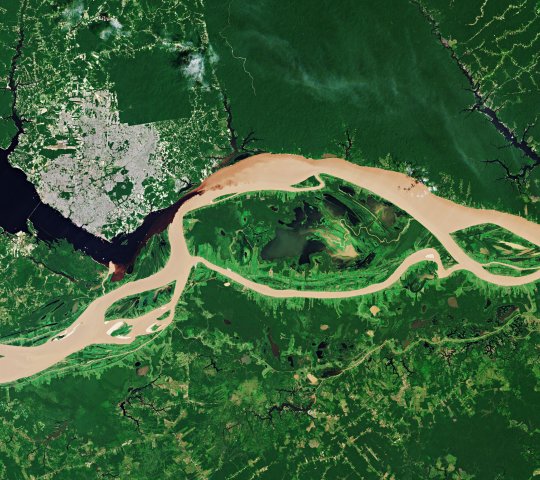
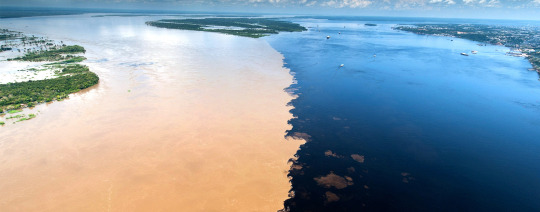
while down south we are seeing amounts of rain and hailstorms the likes of which our infrastructure is simply not built to deal with, up north people who have built everything around the river are at a loss of what to do.
the houses there that are built to float are just on the ground, people who depend on fishing for a living have to walk kilometers to find any fish that are still alive at all, the biodiversity there is at risk, and on an economic level it's hard to grasp how people from the northern states are getting by at all - the main means of transport for ANYTHING in that region is via the river water. this will impact the region for months to come. it doesnt make a lot of sense to build a lot of roads bc it's just better to use the waterway system, everything is built around or floats on the river after all. and like, the water level is so incomprehensibly low the boats are just STUCK. people are having a hard time getting from one place to another - keep in mind the widest parts of the river are over 10 km apart!!
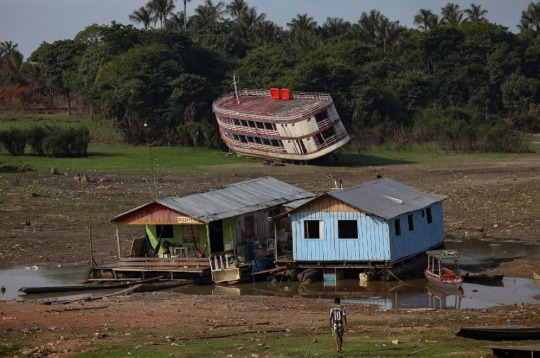
this shit is really serious and i am trying not to think about it because we have a different kind of problem to worry about down south but it's really terrifying when I stop to think about it. you already know the climate crisis is real and the effects are beyond preventable now (we're past global warming, get used to calling it "global boiling"). we'll be switching strategies to damage control from now on and like, this is what it's come to.
I don't like to be alarmist but it's hard not to be alarmed. I'm sorry that I can't end this post with very clear intructions on how people overseas can help, there really isn't much to do except hope the water level rises soon, maybe pray if you believe in something. in that regard we just have to keep pressing for change at a global level; local conditions only would not, COULD NOT be causing this - the amazon river is a CONTINENTAL body of water, it spans across multiple countries. so my advice is spread the word, let your representatives know that you're worried and you want change towards sustainability, degrowth and reduced carbon emissions, support your local NGOs, maybe join a cause, I don't know? I recommend reading on ecological and feminist economics though
however, I know you can help the affected riverine families by donating to organizations dedicated to helping the region. keep in mind a single US dollar, pound or euro is worth over 5x more in our currency so anything you donate at all will certainly help those affected.
FAS - Sustainable Amazon Fundation
Idesam - Sustainable Developent and Preservation Institute of Amazonas
Greenpeace Brasil - I know Greenpeace isn't the best but they're one of the few options I can think of that have a bridge to the international world and they are helping directly
There are a lot of other smaller/local NGOs but I'm not sure how you could donate to them from overseas, I'll leave some of them here anyway:
Projeto Gari
Caritás Brasileira
If you know any other organizations please link them, I'll be sure to reblog though my reach isn't a lot
thank you so much for reading this to the end, don't feel obligated to share but please do if you can! even if you just read up to here it means a lot to me that someone out there knows
also as an afterthought, I wanted to expand on why I think this hasn't made big news yet: because unlike the case of the 2020 forest fires, other countries have to hold themselves accountable when looking at this situation. while in 2020 it was easier to pretend the fires were all our fault and people were talking about taking the amazon away from us like they wouldn't do much worse. global superpowers have no more forests to speak of so I guess they've been eyeing what latin america still has. so like this bit of the post is just to say if you're thinking of saying anything of the sort, maybe think of what your own country has done to contribute to this instead of blaming brazil exclusively and saying the amazon should be protected by force or whatever
#solarpunk#sustainability#environmentalism#climate change#climate crisis#global warming#amazon rainforest#amazon river#geography#brazil#degrowth#punk#global boiling#ecopunk#anti capitalism#climate action#climate activism#the world does not die on my watch#i saw someone use that tag and uh i like it we should make it a thing#long post#:/ sorry i know no one likes lengthy bad news posts on their dashes but i've been thinking about this quite a bit#and i don't really know what to do to help bc i don't have money to donate and i am 10 thousand km away#i think i could be doing more to help but i am already trying my best#again dont feel obligated to share or read this but it would be nice and i would love you forever#have removed lbv from the post
7K notes
·
View notes
Text
That's so cool! And they found a few of them, and they're now growing seedlings in greenhouses for eventual replanting!
Quercus tardifolia is a relic species leftover from when the climate was much cooler and wetter in the past, and can only really live in a few high-elevation spots in Texas. It's definitely still at risk of extinction due to increasing heat and drought caused by climate change, but the discovery means this species still has a chance.
#oak#oak trees#Quercus#Quercus tardifolia#Lazarus species#endangered species#extinction#trees#plants#botany#nature#climate change#global warming
4K notes
·
View notes
Text

Confirmed: Summer 2023 Hottest in NASA’s Record
All three months of summer 2023 broke records. July 2023 was the hottest month ever recorded, and the hottest July. June 2023 was the hottest June, and August 2023 was the hottest August.
NASA’s temperature record, GISTEMP, starts in 1880, when consistent, modern recordkeeping became possible. Our record uses millions of measurements of surface temperature from weather stations, ships and ocean buoys, and Antarctic research stations. Other agencies and organizations who keep similar global temperature records find the same pattern of long-term warming.
Global temperatures are rising from increased emissions of greenhouse gasses, like carbon dioxide and methane. Over the last 200 years, humans have raised atmospheric CO2 by nearly 50%, primarily through the burning of fossil fuels.
Drivers of climate change, both natural and human-caused, leave distinct fingerprints. Through observations and modeling, NASA researchers confirm that the current warming is the result of human activities, particularly increased greenhouse gas emissions.
6K notes
·
View notes
Text
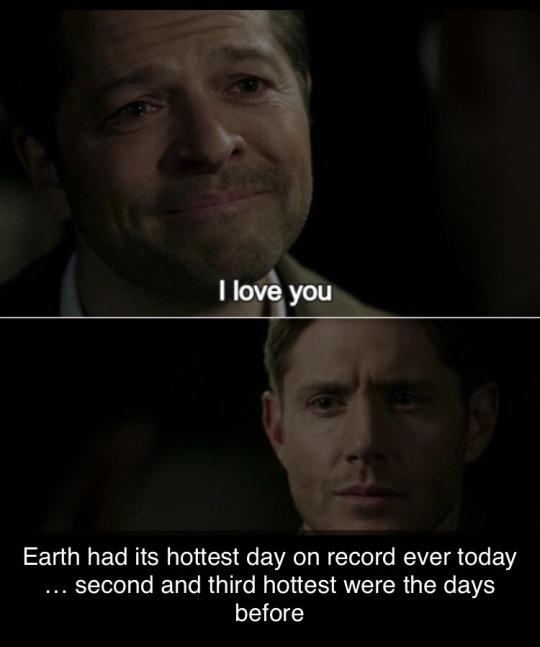
Earth’s hottest day ever recorded by human instruments
Better way to phrase this is : top 3 hottest daily average-global-temperatures ever recorded by human instruments were this week.
#climate change#news#breaking news#destiel news#global warming#just saw this on the news and now I have to go back to writing my essay as of earth isn’t in crisis#phrased this kind of poorly bc I was basing it on what the news anchor said and then found the article on the channels website
7K notes
·
View notes
Text
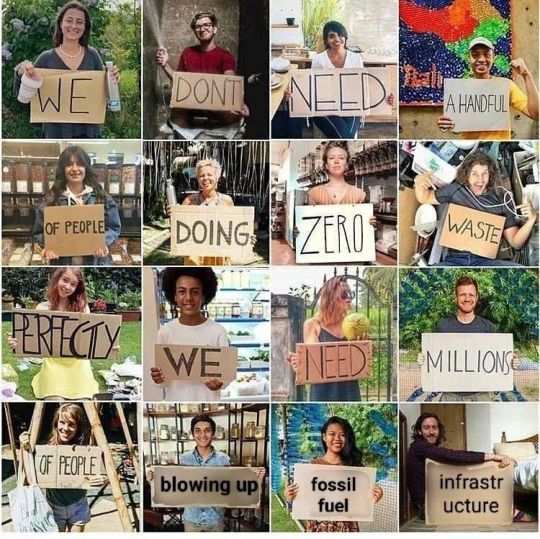
#fossil fuels#infrastructure#global warming#environmentalism#memes#meme#antifascist#co2 emissions#co2#methane#carbon dioxide#jerkmillionaires#jerkbillionaires#jerktrillionaires#eat the rich#eat the fucking rich#ausgov#politas#auspol#tasgov#taspol#australia#neoliberal capitalism#fuck neoliberals#anthony albanese#albanese government#fuck the gop#fuck the police#fuck the supreme court#fuck the patriarchy
6K notes
·
View notes
